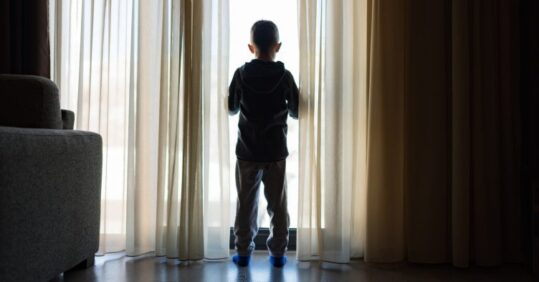Nurses warn of ‘long-lasting’ damage of lockdown on families

The impact of children not attending school and families not having access to the usual levels of support during lockdown is likely to be felt for years, Nursing in Practice has been told.
School nurses and health visitors have expressed concern over the long-lasting consequences of loneliness, rising levels of abuse, and disrupted education and social interaction that children and families have suffered since restrictions began last March.
School and Public Health Nurses Association (SAPHNA) chief executive Sharon White highlighted a surge in ‘extremely complex, profound and harrowing’ safeguarding issues. She stressed that all children were the ‘collateral damage’ of lockdown, which is likely to have an impact for ‘a long time’.
The warning comes as school were shut for the second time in January amid reduced access to support services and social groups for families.
Related Article: New preceptorship package for social care nurses
Karen Bisp, a health visitor in Oxfordshire, predicts a ‘huge raft of children without normal stimulation or socialisation who will not be meeting their developmental targets’ as need rises even among families who would typically require only the lowest levels of support.
She continued: ‘Nobody is experiencing a normal maternity or transition into parenthood. Parents feel they have missed out on so much. It’s almost like a bereavement. Around 90% of our mothers feel more unhappy than is typical.
‘Each client needs a bit more than they would have done, even if it’s just one phone call. We’re trying to overcompensate for these women who are feeling more lonely and less supported,’ she added.
Health visitor David Midwinter, based in Sheffield, agreed there was likely to be missed issues because of the reduction in face-to-face visits. Teams are already seeing decreases in school readiness as children miss ‘peer interactions, social interactions and early year’s settings’, he added.
He continued: ‘And when we do manage to visit, we can’t signpost families because there’s not a lot to signpost them to. But they’re worried about lots of things including lack of socialisation and bonding with the baby. I think general anxiety is huge among families right now.’
However, both school nursing and health visiting teams have carried out innovative work to help children and families as best they can.
Related Article: Funded nurse workforce plan needed for neighbourhood health services
Ms White said school nurses have been working on ‘giving families every opportunity to reach out’ including through text services and even socially distanced walks with a nurse. She added: ‘The workforce is exhausted. But school nurses are solution-focused and so driven.’
Institute of Health Visiting (IVH) director Alison Morton said: ‘The stress on families has been increasing and more families are being tipped into vulnerability. But health visitors have gone absolutely above and beyond to tackle this – and this is a workforce under huge pressure.’
In December, an IVH survey revealed that health visitors fear a tragedy in their areas with the vast majority reporting soaring domestic violence and abuse.
Related Article: Nurse had to ‘freeze’ PPE during pandemic to re-use in care home, Covid inquiry hears
Health visitor numbers in England have plummeted in recent years, falling from 10,309 in October 2015 to 6,753 in September 2020, the latest figures from NHS Digital show.
Likewise, school nurse numbers in England have fallen from a peak of 3,026 in January 2010 to 2,027 in September 2020.

See how our symptom tool can help you make better sense of patient presentations
Click here to search a symptom




